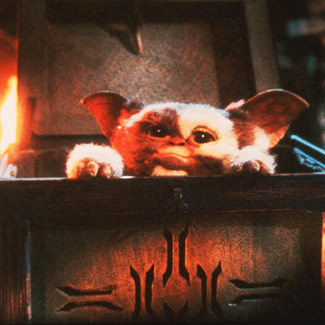From the Chicago Reader (October 18, 2002). — J.R.

In Praise of Love
**** (Masterpiece)
Directed and written by Jean-Luc Godard
With Bruno Putzulu, Cecile Camp, Claude Baignieres, Remo Forlani, Audrey Klebaner, Mark Hunter, and Jeremy Lippmann.

Berthe: “When did the gaze collapse?”
Edgar: “Before TV took precedence.”
Berthe: “Took precedence over what? Current events?”
Edgar: “Over life.”
Berthe: “Yes. I feel our gaze has become a program under control. Subsidized….The image, monsieur, the only thing capable of denying nothingness, is also the gaze of nothingness on us.”
— In Praise of Love
Let feelings bring about events, not the contrary. — Robert Bresson, Notes on Cinematography, quoted in In Praise of Love
Six years ago, when Jean-Luc Godard was presenting his feature For Ever Mozart in Toronto, he described Eloge de l’amour (In Praise of Love) as his next project — a play he would stage in Switzerland. So it seems appropriate that his film with the same title opens with a young man, Edgar, planning a project called Eloge de l’amour that might be a film, a play, a novel, or an opera. (During the first hour of the film only two intertitles are used: “something” and “about love.”) Read more
This review, featured on the cover, appeared in the December 1985 issue of Video Times. I was living in Santa Barbara at the time, and not long after it came out, I met Joe Dante for the first time, in Los Angeles (at a party given by Todd McCarthy); he’d recently read this review, and, as I recall, told me that he liked it. — J.R.

Gremlins ***
As a producer and director, Steven Spielberg seems limited to two subjects: power and magic. The power that interests him is, of course, the power that he commands, and the magic is that of his medium. Put these together and add the input of director Joe Dante, another film buff, and you get a movie about movies, triple-distilled. And the curious achievement of Gremlins is that it makes such self-absorption commercially viable, at the same time that it refuses to conform to any single, sustained social meaning. Much as the depiction of Vietnam in Coppola’s Apocalypse Now was designed to placate hawks and doves alike, gremlins is cleverly contrived to please skeptics as well as believers, optimists as well as pessimists about the American way of life. Thanks to a disconnected episodic structure that suggests several separate movies crammed together — a strategy that re-creates the fragmented, discontinuous flow of TV watching — viewers of Gremlins are invited to chart out their own justifications for enjoying Dante and Spielberg’s treasure trove. Read more




